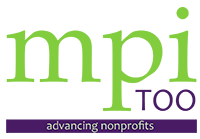Raleigh, NC (May 29, 2014) – The North Carolina Retail Merchants Association (NCRMA), a nonprofit trade association, applauds the North Carolina General Assembly’s action to fix the business license tax inequity that has plagued job creators since the late 1990s.
Today, with bi-partisan support, the General Assembly overwhelmingly passed HB 1050“Omnibus Tax Law Changes” that will repeal the Privilege License Tax in North Carolina, effective July 2015. Originally intended to help local governments know who was doing business in their towns and cities, in recent years this business tax has instead become a revenue source to fund budget shortfalls. The General Assembly has reigned in an archaic tax that was never envisioned to get to these levels and, in many cases, exceeded the municipality’s taxing authority by levying these taxes based on gross receipts with no regard to profit or services provided to the business.
Privilege license tax reform came as a recommendation from the Revenue Laws Study Committee and was sponsored and championed by Representative Julia Howard (R-Davie), Representative David Lewis (R-Harnett), Representative William Brawley (R-Mecklenburg), Representative Mitchell Setzer (R-Iredell), Senator Bill Rabon (R-Brunswick) and Senator Bob Rucho (R-Mecklenburg).
“One of the most frustrating things business owners face is uncertainty when it comes to taxes and regulation,” said NCRMA President and General Counsel Andy Ellen. “The most blatant example of that is the local Privilege License Tax. Localities have been taking advantage of a loophole in statute where they are arbitrarily deciding how much revenue they’d like to squeeze out of businesses.”
Retailers, wholesalers and manufacturers have been hit with more than their share of the burden with gross-receipts based taxes piling up around the state, in some cities paying more than $20,000 per location while other businesses remain exempt or paying minimal amounts. The privilege license tax is especially burdensome for those businesses operating in multiple towns; the “hodge-podge” of tax formulas across the state has become increasingly difficult to manage.
Retailers pay property taxes, business license fees, trash collection fees and collect the sales tax for free. However, it is not practical for one industry to bear the burden of raising additional revenue for local budgets.
NCRMA’s 2,500 members, who employ 1 in 4 in our state, are glad to see this chapter on business license taxes come to an end and greatly appreciate the General Assembly’s efforts on this important business issue.

